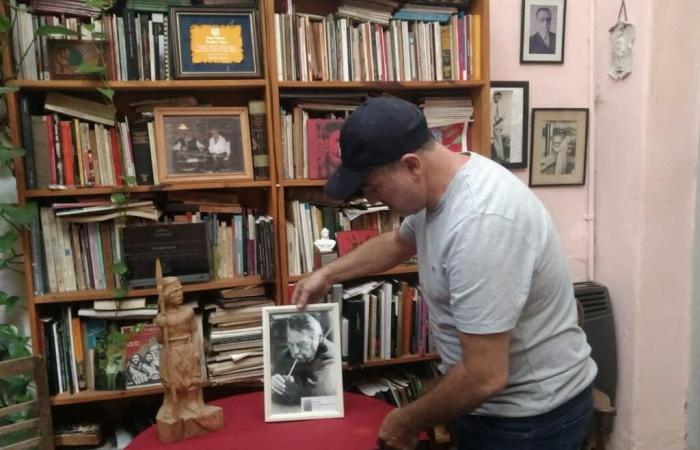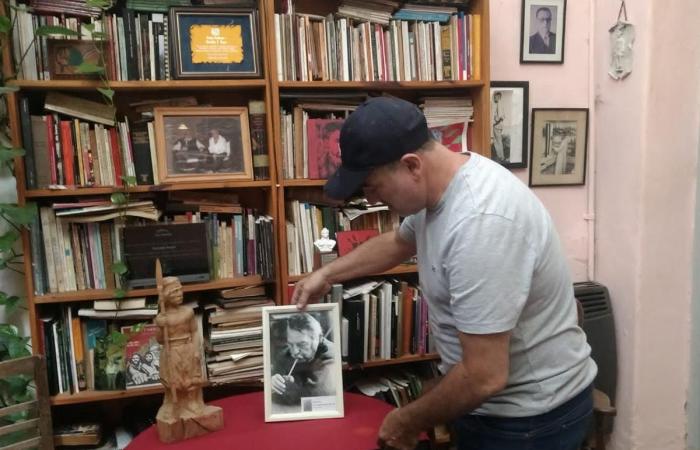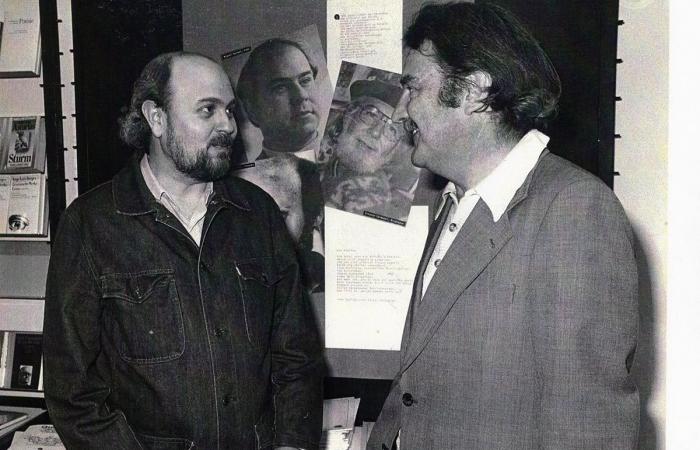He crossed it once and, like so many others, he was dazzled. Osvaldo Bayer went to Fabio Zurita a compass, an example. Without proposing it, he began to follow him as an apostle behind an atheist and irreconcilable. He accompanied him with a camera – with many cameras, actually – for three decades, without knowing very well what he would do with all that material. Until the movie was inevitable. YO FILMÉ A OSVALDO BAYER Not only does the intellectual legacy portray, but also the intimate course of who decided to document it. The voiceover is by Diego Capusotto, friend of the filmmaker, who tells the stories that Zurita was not encouraged to tell in the first person.
“What propelled me is that he moved his kindness. He did not have to do it, but he helped me a lot. His ability to do thousands of things was admirable. Then I said: you have to portray this in some way, and I began to accompany him to all the places I could,” says Zurita.
“How did the movie arise?”
“I known Bayer in 88, in a talk about political prisoners she gave in the Box Federation.” I told him about a material that I had for a documentary about police violence in football, which I ended up calling Creole duck. He lived in Germany and took the VHs to show them there. On the way back, he passed through Córdoba and presented them to the light and strength union. At that time, I had included comments from journalists with opposite positions to generate a counterpoint. when he saw him, he got angry. “That is not what you showed me,” he told me. He asked me to get him out and pay attention to him. He explained that if it was an irony, it was not understood. Years later I understood why: if the figures are too well known, people do not pay attention to the important.
He promised as if he were his movie. He showed her in Germany, gave talks about her, her daughter Ana also spoke. It was amazing. There I understood that this character had to eternalize it. I started recording without knowing what I was going to finish.
“Why was it already a huge figure?”
-Of course. Put The rebel Patagoniaby Severino, for his exile, for his friendship with Walsh. And yet, it was generous, always with open doors for young people. I admired it because I treated everyone equally: a talk in a humble neighborhood prepared it as if it were for Harvard. There was no crack between his ethics and his practice. What he wrote was what he lived. I received you with a wine, I listened, debated, be it a great magazine or a provincial radio. He was very friendly and very consistent.
“How do you think would react today?”
—With this government, which got into health, with gender, with the Pope, with public education … when they threw their monument, that was too much. They had to go back. And that rude gesture woke many. Bayer is more present than ever: there are libraries, stadiums, murals with his name. But what remained was his example. It was like a pilgrim. He helped native peoples, communities, militants. They still love it. It was a voice that is missing today. More than twenty years ago he had warned that the right was organized. I said it long before macrismo. I don’t know what I would say now, but the movie suggests it: because I already said it then. Their ideas are still a guide, and their warnings are still in force.
-“How did Capusotto join?”
“We studied theater together with kids.” We always accompany each other in my projects and I in his. I proposed to tell the movie with your voice, to interpret my thoughts. He knows me, I knew how to say it. He recorded everything first on his phone and then asked me to rehearse more, watch the whole movie. He did not want to charge a peso. He came to the studio in Morón and recorded everything again. It was very generous.

“How did you structure the material of thirty years?”
“The film also shows my failures to do it.” Because there were many. For years I thought that very good documentaries had already been made about him, and stopped me. But I had unpublished material. And an internal pressure: that time I corrected me, I never forgot it. I always thought about whether he would understand the movie. Because every thing he did for a different movie: The rebel Patagonia It is one, Severino is another, mothers is another. It was a challenge. At one point I thought about his 90 years, and I didn’t succeed either. Until I understood that it had to be that: a movie I could not do. Because following him was to sneak into his life. With him I met places and people who would never have reached. It was unbeatable. So I told all that. I told my impossibility.
“What relationship did you have with him?”
“A friendship.” Trust was generated. Once my camera was stolen and he wanted to buy another. I did not accept, but that gesture said everything. It was always. Sometimes he filmed with borrowed teams, with what there was. It was not easy. But I continued, as I could. It was very important for me. And I know it was also for many other people.
YO FILMÉ A OSVALDO BAYER
Of Fabio Zurita. Narrator: Diego Capusotto. With the testimony of David Viñas, Eduardo Galeano, León Rozitchner, Leonardo Favio and Hebe de Bonafini, among others. On Wednesday, May 7 at 20 Cine Theater Helios, Blvd. San Martín 3076, El Palomar and during the remainder of the month, at the Cineclub the Rauch cabinet, province of Buenos Aires.








